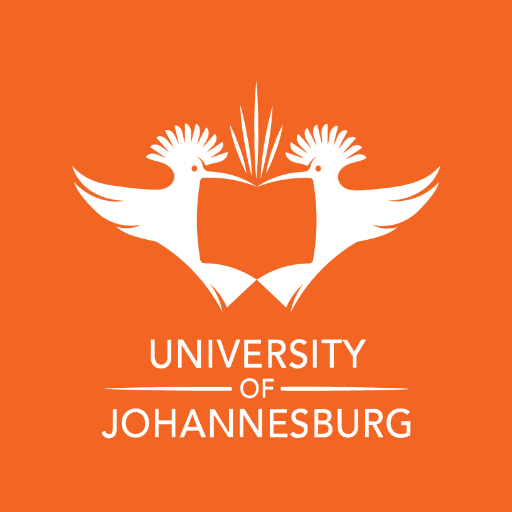Events
Home » College of Business and Economics » Schools » School of Economics » Public & Environmental Economics Research Centre »4 – 7 September 2023
From the 4th to the 7th of September 2023, the South African Local Government Association held a National Members Assembly at in Johannesburg, Gauteng.
Government officials including members of the executive, municipal leaders, mayors, councilors and CFOs of over 200 municipalities across the country attended the Assembly.
The head of the Public & Environmental Economics Research Centre (PEERC), at the University of Johannesburg (UJ), Mr. Jugal Mahabir, was invited to join the breakaway group entitled Municipal Financial Sustainability To Achieve Local Government Objectives. He offered commentary regarding municipal revenue enhancement, infrastructure financing and conditional grants from his vast experience in local government performance, and the efficiency of sub-national government expenditures and estimating the revenue potential of municipalities.
For more information, please refer to the Adoption of the SALGA Annual Report and Annual Financial Performance 2022/23 and SALGA Annual Performance Plan 2023/24.
September 2023
Seminar: Further evidence on the debate to shake off the South African Water Pricing System.
DATE 13 September 2023
TIME 13:00-16:00 (CAT)
PLEASE RESERVE YOU SEAT HERE: https://events.teams.microsoft.com/event/b1b4a49f-4161-4f49-ba3c-326ccc27f391@fa785acd-36ef-41bc-8a94-89841327e045
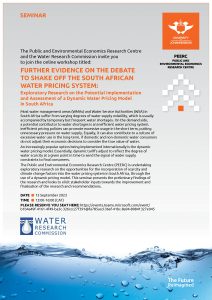
May 2023
Black VCs are treated differently from their white counterparts, says researcher
Black university leaders are treated differently from their white counterparts. This is the observation made by Dr Sean Muller, a senior researcher at the University of Johannesburg. Read more…
March 2023
Student Volunteering Programme
PEERC launched an annual Volunteering Programme in March 2023, with postgraduate students who filled the roles of Junior Research Assistants. The first intake began in April 2023, and this has been a great addition to the PEERC team.
At the centre Yolanda Selaelo Makgalefa – Masters in Economics; on her right Athule Rampeba – Bcom Honours in Economics; Mahlatse Mailula – 2nd year Bachelor of Health Science (Complementary Medicine); Paballo Maphike – Bcom Honours in Economics. On the left, Thabang Mokase – Bcom Honours (Economics), Babalwa Somtunzi – Bcom Honours (Economics) and lastly Mpho Makaringe – Bcom Honours (Economics)
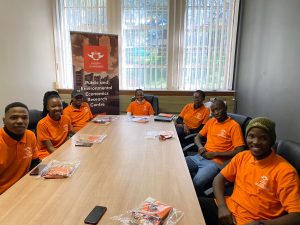
27 February 2023
Fiscal Framework and Revenue Proposals – Dr Seán Mfundza Muller
This is a summary of the submission to Parliament regarding the 2023 Budget with a particular focus on the fiscal framework and revenue proposals as well as the broader mandate of the Committees. Read More…
17 November 2022
2022 African Economic Conference (AEC), 09-11 December 2022, At the Intercontinental Hotel, Mauritius
On behalf of the African Development Bank (AfDB), the Economic Commission for Africa (ECA), and the United Nations Development Programme (UNDP), Dr. Frank Bannor was invited to the 2022 African Economic Conference (AEC), which took place from 09 – 11 December 2022 at the Intercontinental Hotel, Balaclava, Mauritius. The theme for the conference was “Supporting Climate-Smart Development in Africa.”
October 2022
During the 4th Annual Urban Economic Forum (UEF4) held in October 2022 in Toronto, Mr. Jugal Mahabir, Director at the Public and Environmental Economics Research Centre (PEERC), based out of the University of Johannesburg (UJ) emphasized the challenges South African cities and municipalities face in maximizing their own revenue potential, as indicated by the high levels of debt owed to municipalities in the country. Read more…
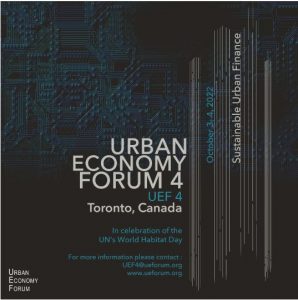
2022
The South African Local Government Association (SALGA) invited Mr Jugal Mahabir, Director of the Public and Environmental Economics Research Centre (PEERC), to present a webinar on the potential impact of the revised National Pricing Strategy for Water Use Charges on local government. Read More…
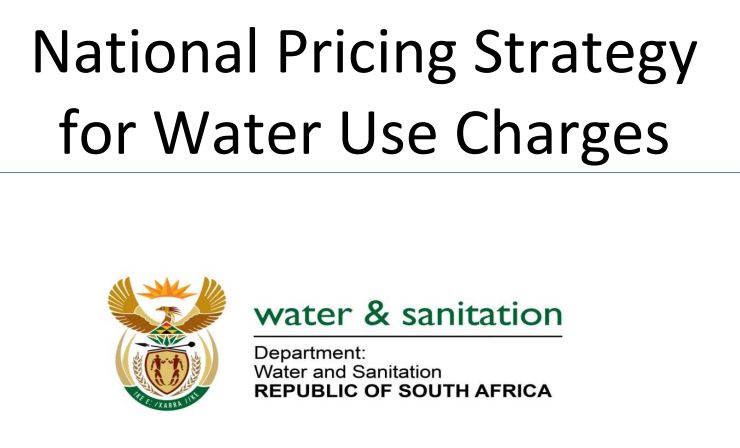
22 June 2022
In November 2020, the Water Research Commission (WRC) launched a Water Graduate Employment Programme (WaterGEP) funded by the WRC and the Department of Science and Innovation (DSI) to provide workplace exposure for 400 graduates. Read more…
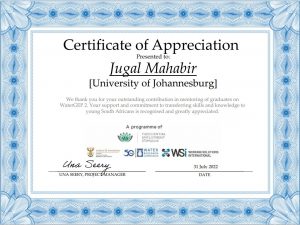
02-04 August 2021
African Association of Environmental and
Resource Economists (AFAERE) Inaugural Conference
for more info
08 October 2020
African Association of Environmental and
Resource Economists (AFAERE) Webinar
For more info
24 September 2020
African Association of Environmental and
Resource Economists (AFAERE) Webinar
Thursday 24 September, 2020 – 14h00 GMT
Past AFAERE Webinars are available here
01 September 2020
WRC Webinar
Dialogue: Are Water Services Affordable in South Africa?
Click here for presentations
24 June 2020
Online EAERE Pre-Conference Workshop
The economic impacts of air pollution and the implications for policy
Wednesday, June 24, 2020 – 13:00 – 18:00pm (Paris time)
Click here for programme
17 June 2020
Municipal Money: Household Bills
Click here for presentations
21 March – April, 2018
Visits to Luxembourg Institute of Socio-Economic Research
Click here for more
18 – 20 March, 2018
CSAE Conference 2018: Economic Development in Africa
Click here for more
